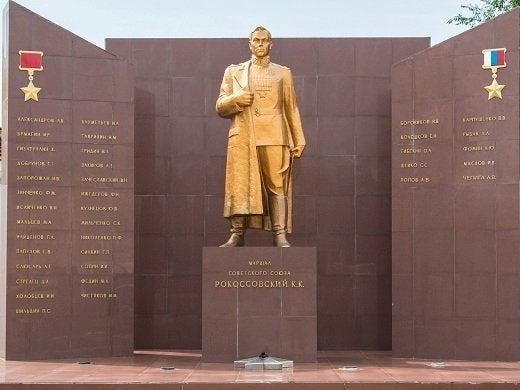After the unveiling of one of the Skripal suspect’s true identities, can UK-Russia relations get much worse?
Analysis: Colonel Anatoly Vladimirovich Chepiga, who is said to have travelled to the UK under a false passport, received Russia’s highest military honour. Kim Sengupta considers whether the new information will change anything


The claim that one of the men who carried out the novichok attack in Salisbury was a senior officer in the Russian military intelligence service is the most direct public accusation yet that Sergei Skripal and his daughter were the targets of state-sponsored assassinations, directed by the Kremlin.
Colonel Anatoliy Vladimirovich Chepiga, who had travelled to Britain under the name of Ruslan Boshirov was not only in the GRU, it is alleged, but remains active in the service and holds his country’s highest decoration, Hero of the Russian Federation, which was personally bestowed by the orders of the President of the Russian Federation, Vladimir Putin.
Moscow, as has been the case with any accusation of Russian culpability in the Skripal attack, dismissed the report from investigative news outlets Bellingcat and The Insider as “fake news”.
Maria Zakharova, a spokeswoman for the Russian foreign ministry wrote in an online post: “There is no proof, so they continue this information campaign, the main goal of which is to distract attention from the main question: WHAT HAPPENED IN SALISBURY?”
However, the websites’ claims are backed by British officials, as well as those from Ukraine, who claim to have knowledge of the matter.
The true identity of Col Chepiga’s companion in Salisbury, who used the name Alexander Petrov, will emerge in the near future, they maintain, and it will show that he too is a serving member of the GRU.
Col Chepiga, according to the Bellingcat and Insider account, received his medal in December 2014 “for conducting a peacekeeping mission”.
This was before the Russian deployment in Syria, and at a time during which there were no military operations in Chechnya, but when the separatist civil war was raging in Ukraine.
I spent months in Crimea and the Donbas region, in the east of the country, covering the conflict in 2014. The Russian military, including the Spetsnaz special forces, the unit in which Col Chepiga had served, had an overt presence in Crimea, while in the Donbas my colleagues and I regularly came across members of the Russian armed forces who had supposedly volunteered to help compatriots.
If the reports are true then the role of Col Chepiga in Ukraine – a complex and, certainly in the case of Crimea, a highly-planned mission of fundamental importance to the geopolitical strategy of the Kremlin – would tend to negate the theory that the attempted killing of Mr Skripal, a former GRU officer, resulted in a vendetta by former comrades he had betrayed to MI6 for money.
There is other evidence, already in the public domain, which points to official Russian links to the Skripal case. Col Chepiga’s passport varied by a single digit from that of his travelling companion, Mr Petrov; furthermore a telephone number related to his passport led to the Ministry of Defence in Moscow and the files relate to the internal passport in the name of Petrov, whose passport was marked “Do not reveal information”.
One would have thought that the Kremlin must have known that the identities of those involved in the Salisbury poisoning would come out. The information supplied by Bellingcat and The Insider has been unearthed by diligent journalism in Russia, but it has drawn on open sources.
Yet we had the extraordinary television interview with the two Russian suspects, during which they risibly explained away their visit to the UK and Salisbury as tourism. And then President Putin himself appeared on television to describe them as innocent civilians unknown to the state.
Even if the Moscow version of events totally falls apart, it remains unclear what more Britain can do about the use of nerve agent on its soil. At the meeting of the UN Security Council General Assembly in New York, Theresa May condemned “desperate Russian fabrications” about Salisbury and declared that “with our allies, we will continue to take the appropriate steps to ensure our collective security”.
But the allegations of Kremlin culpability have already been presented to allies by the UK and led to expulsions of Russians working as diplomatic staff in a number of countries.
Further sanctions against Moscow from the European Union are improbable at the moment and Donald Trump is unlikely to want to impose further US sanctions, having complained about the last ones passed by Congress.
The US president refused Ms May’s request to raise the Salisbury attack with President Putin during the Helsinki summit, and when the British prime minister said there was “95 per cent certainty” of the Kremlin’s guilt, he reportedly responded: “Let’s wait until it’s 98 per cent.”
At the UN session on preventing the proliferation of chemical, biological and nuclear weapons this week Mr Trump did not once mention the novichok attack, the first use of a nerve agent in Europe since the end of the Second World War.